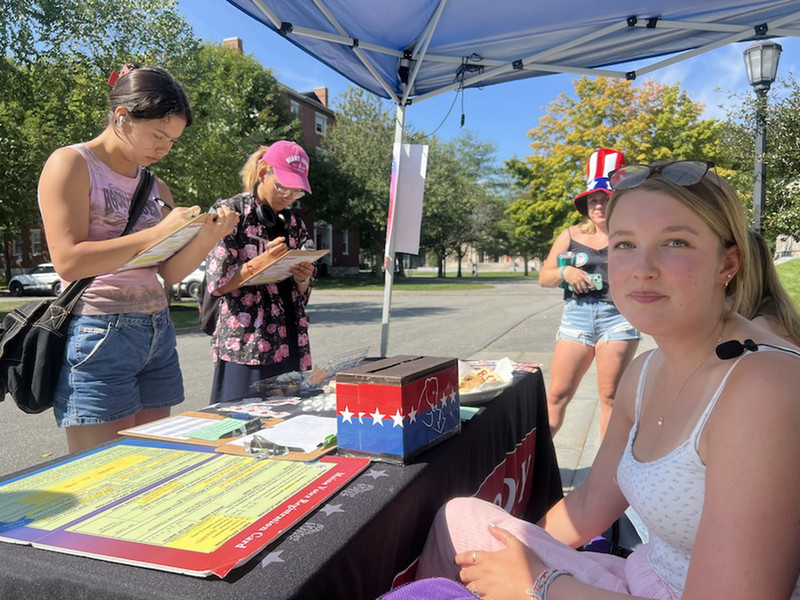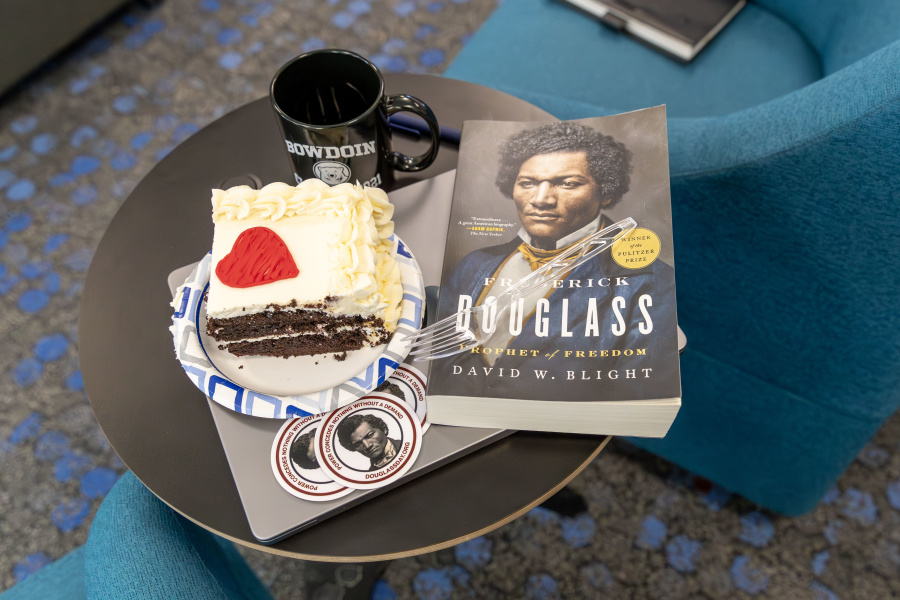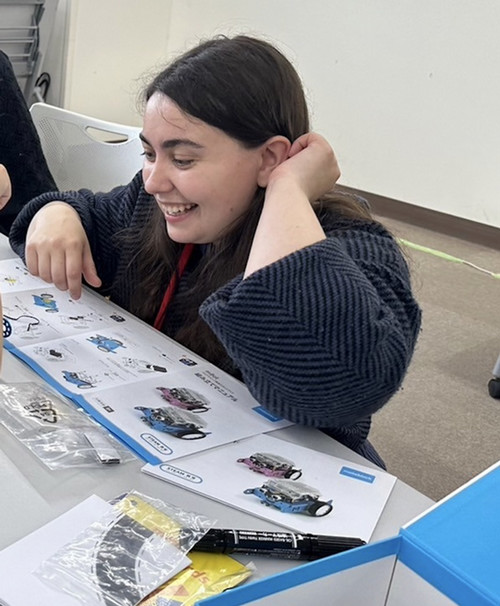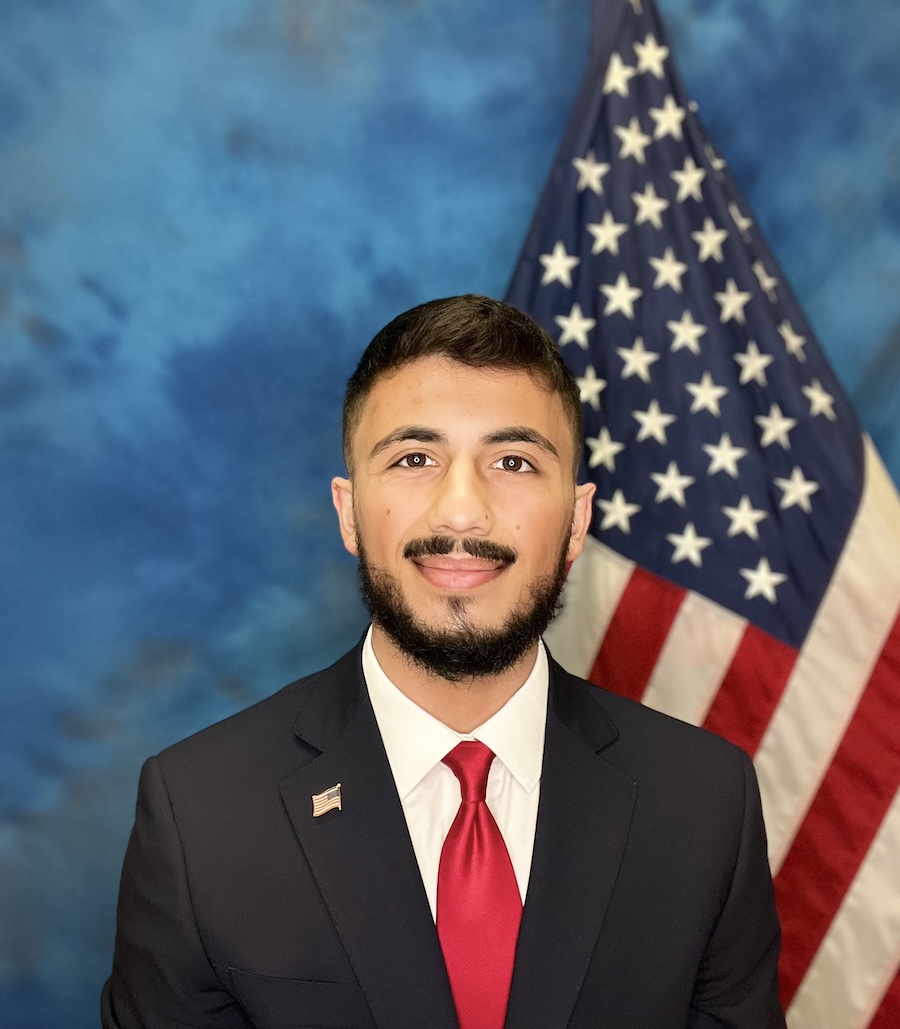Alternative Spring Break Students Reflect on Trips Taken, and Not
By Julius Long ’20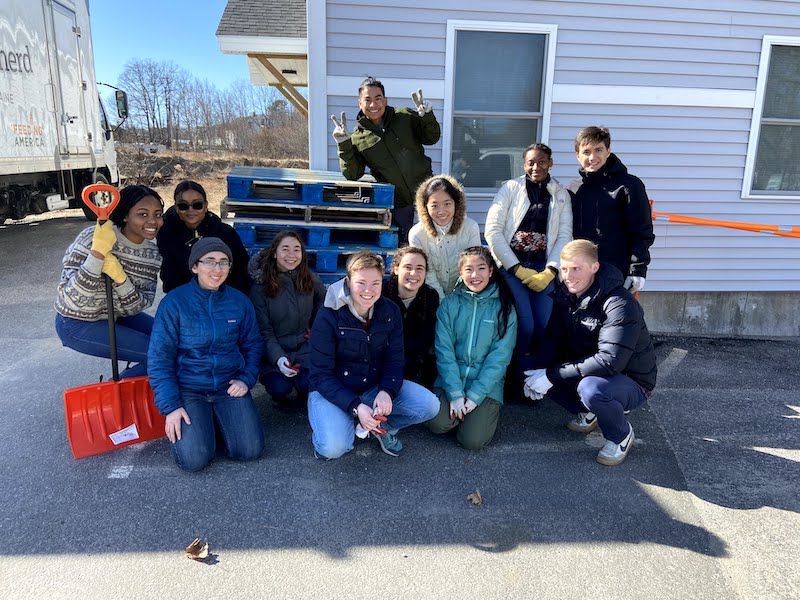
This year, six public service trips were slated to take place in two Maine locations (Pleasant Point and Aroostook County), as well as in Washington, DC, Hawaii, Mexico, and Puerto Rico.
Due to concerns over COVID-19, only three trips were able to proceed as planned, but participants from all of the McKeen Center’s Alternative Spring Break trips met via Zoom recently to reflect on lessons learned.
Andrew Lardie, the McKeen Center's associate director for service and leadership, began the videoconference by acknowledging the efforts of Tina Chong, assistant director of the Baldwin Center, and the McKeen Center fellows who collaborated to administer this year’s program.
Planning these trips is a rigorous process for faculty and students, Lardie noted. Trip leaders present detailed proposals a year in advance, McKeen Center Fellows train trip leaders throughout the fall semester, and selected participants meet for weekly seminars in advance of their scheduled trips in March.
Ben Hopkins ’20, a McKeen Center fellow, led an Alternative Spring Break (ASB) trip last year and participated in another the year before. “I think the seminars offer us an understanding of what service is, what the issue is where we’re going, and what each individual participant’s relationship with the issue is. When those three things come together,” he added, “you have a very deep, nuanced understanding of what the issue is and how it plays out in that community.”
For the trips that didn’t materialize, seminars still gave students a rigorous dive into issues ranging from immigration at the US-Mexico border to public health policy to indigenous rights and education in Maine.
Food and Environmental Justice in the Crown of Maine
Lauren Hickey ’20 and Riena Harker ’20 led a trip focused on sustainable agriculture in southern Maine, with the support of Jeremy Tardif, who manages the Bowdoin Organic Garden.
They joined forces with the cohort of students from the Passamaquoddy Community and Education trip for an interactive education exercise on the history of the Wabanaki people in Maine.
“I was glad the other trip was able to do that despite not being able to carry out the rest of their service,” Hickey said. “But the main part of our trip was in Aroostook County, so we got in the car and drove four hours north, where it was still winter.” The group met with over a dozen local community partners, including Springworks Farm in Lisbon, Maine, New England’s largest aquaponics farm, founded by Trevor Kenkel ’18.
While gaining a better understanding of sustainable food practices, the group also took the opportunity to cook traditional dishes for each other throughout the week.
Homelessness and Colonialism in the Racial Paradise
Over 5,000 miles away, Lynn Nguyen ’22 and Eunice Shin ’22 led a trip in Hawaii. Nguyen and Shin were first-year roommates, and both had gone on ASB trips in 2019.
“I went to Guatemala, and she went to San Francisco,” Nguyen said. When looking for a way to combine the topics of their previous trips—homelessness, colonialism, and the Asian American experience—Nguyen and Shin found that Hawaii would allow them to explore all of that and more.
“If you look at the statistics, Hawaii has the highest homeless rate per capita in the United States, and 30 percent are native Hawaiian,” Nguyen said. They expressed gratitude to their trip advisor and Professor of Sociology Nancy Riley for highlighting the concept of a flipped racial hierarchy between the mainland and Hawaii. “That made our trip more nuanced. The purpose of ASB trips is to smash our notions informed by the typical illustrations of these places.”
As they left the airport and headed west toward Waialua, a community on the outskirts of Honolulu, the touristy allure of the island began to fade. “Our first impressions were that this isn’t a paradise like everyone says,” Nguyen said. She explained that students took full advantage of the daily debrief integrated into the programming for every ASB trip. “When we partnered with the Hawaiian Health and Harm Reduction Center, we saw a presentation that opened our eyes to the realities of the native Hawaiian experience, particularly with regard to access to health care, so much so that health care became a focus of our trip on top of homelessness and colonialism. After that presentation,” she added, “we had a really fruitful discussion that we brought back to our families and hopefully can bring back to Bowdoin.”
Land, Identity, and Justice in the Oldest Colony
With the support of faculty advisors Javier Zacota, assistant professor of history, and Janice Jaffe, Ray Tarango ’20 and Michel Veras ’20 led students on a trip to Puerto Rico, where they examined the island's cultural and political history, its fight for self-determination, and local agriculture.
The group partnered with Brigada Solidaria del Oeste (Solidarity Brigade of the West), a grassroots nonprofit that assumed a role of “first responders” after Hurricane Maria, as well as Plenitud Puerto Rico, an educational farm and community dedicated to spreading sustainable practices on the island.
Solana Torres ’23 found inspiration engaging with Bowdoin alumnus Yanna Muriel ’05, an organic farming advocate and educator in Puerto Rico. “I think it was really empowering to see how different paths emerge from a tiny school like Bowdoin,” Torres said. “Tying together what is possible after Bowdoin and what you can accomplish on a local, grassroots level was really powerful for me to learn.”
Taking a Step Back
For those who were able to participate this year, news of Bowdoin’s closure threw a wrench in their respective itineraries. “A lot of what the community partners talked about was balancing being supportive of your community and caring for yourself personally,” Torres said.
On each trip, students took a step back from their service to deal with the emotional and logistical stresses of the news. “Having that group was a helpful reminder of how powerful being present and connected to where you are can help you get through some tough and emotional times,” Beth Koeller ’22 said.
Returning students who were selected to lead and participate in Passamaquoddy Community and Education, Health Beyond the Hill, and Transcendiendo Fronteras: Immigration at the Border will have the opportunity to participate again next year if they choose to do so.
